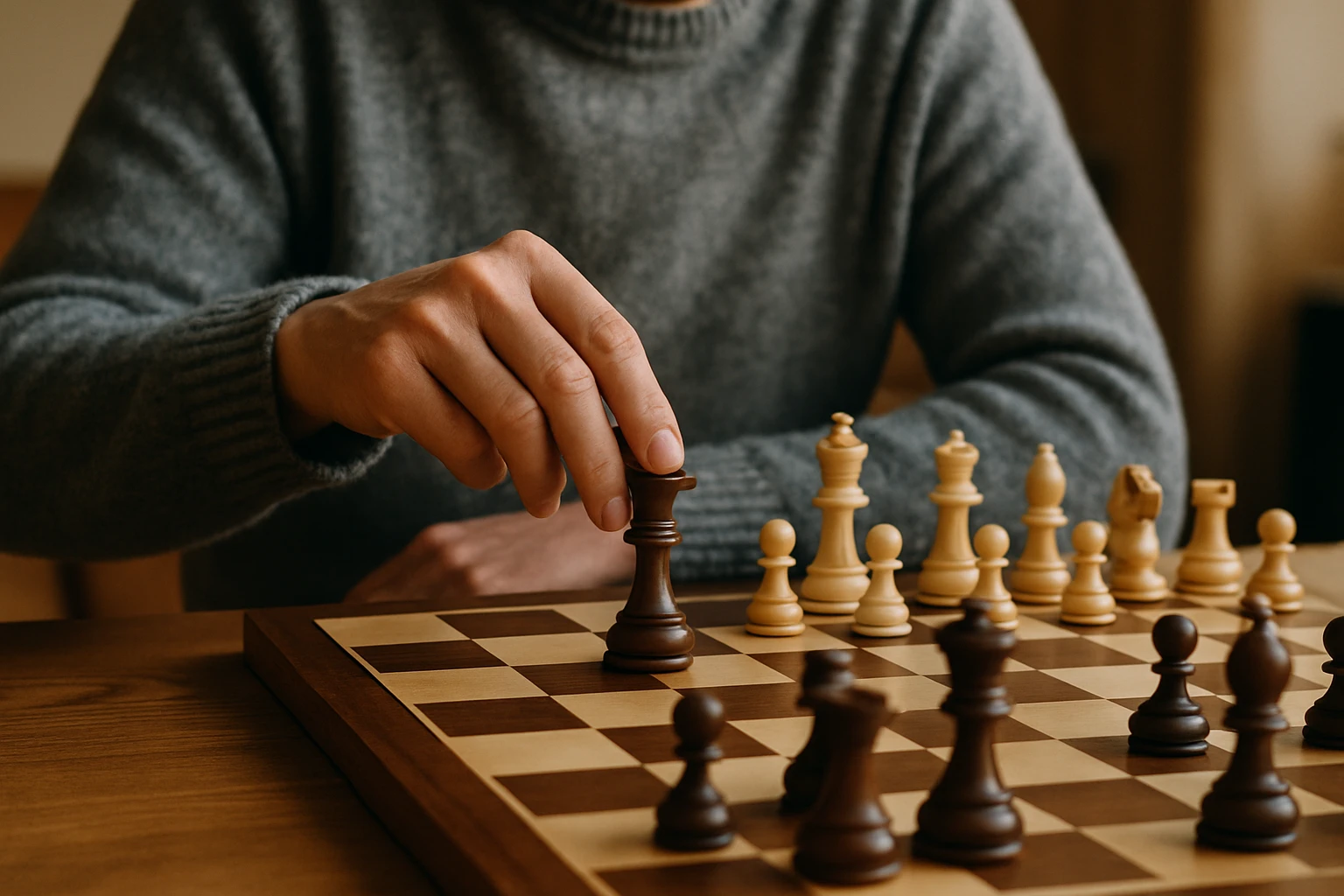
Chess is not only a game of strategy and culture — for the brain, it is a powerful workout. Research shows that regular chess practice can significantly improve cognitive abilities and help maintain high mental sharpness over time.
Although there are many activities believed to strengthen the mind, chess stands apart. Few others combine memory, logical thinking, emotional control, creativity, focus, and planning so naturally in one discipline.
Whether you play casual games online, take online chess lessons, work with a personal chess coach, or compete in tournaments — the impact is unmistakable. Many players say chess changes the way they think, not only at the board but in everyday life as well.
Why Chess Works as Brain Training
Chess is essentially a mental gym. Every game forces the brain to:
- Process and evaluate new information quickly
- Recognize patterns and recall previous ideas
- Calculate moves and consequences
- Resist emotional impulses
- Make strategic decisions under time pressure
This combination is rare. Most activities develop one or two cognitive functions — chess trains almost all of them at once.
Neurological studies confirm that chess activates both hemispheres of the brain: the left focuses on logic and calculation, while the right manages spatial recognition, patterns, and imagination. That’s why chess is both analytical and artistic.
Memory Improvement
Chess strengthens memory through active recall. Players need to remember:
- Typical opening structures
- Common tactical themes
- Endgame principles
- Opponent tendencies
- Strategic plans
This builds not only long-term memory, but working memory, the ability to hold and manipulate information in the mind.
Regular players develop:
- Faster information processing
- Stronger recall
- Better mental organization
- Greater capacity to work with complex ideas
Unlike passive learning, chess constantly forces you to use what you remember — which makes memory stronger.
Pattern Recognition & Critical Thinking
Grandmasters don’t calculate every possibility — they recognize patterns instantly. Over time, regular practice teaches players to:
- Spot tactical threats quickly
- Identify positional imbalances
- Evaluate positions from both sides
- Choose plans instead of random moves
Training with a grandmaster chess coach accelerates this process even more. Instead of memorizing moves, students learn to think in patterns and understand why ideas work.
Strategic Planning & Decision-Making
Strong chess players learn to:
- Set long-term goals
- Break them into realistic steps
- Adjust plans when necessary
- Stay calm under pressure
These skills are universal — lawyers, engineers, business leaders, and software developers frequently credit chess for sharpening their thinking habits.
Concentration & Focus
In a world full of distractions, chess demands focus. It trains:
- Deep attention
- Controlled decision-making
- Patience
- Mental endurance
For children, this improves academic performance. For adults, it enhances productivity, attention span, and stress resistance.
Emotional Control & Resilience
Chess has an emotional side. Losses, mistakes, time pressure — they all require discipline. Regular play builds:
- Emotional stability
- Patience
- Composure in difficult moments
- Resilience after setbacks
Losing teaches humility; winning rewards discipline. Chess strengthens character as much as intellect.
Creativity & Imagination
Chess isn’t just logic — it requires creativity. Sacrifices, unexpected maneuvers, brilliant ideas — all require imagination. The best players are not calculators; they are creators.
Playing vs Structured Training
Casual play is helpful, but structured training unlocks chess’ true brain-training power. Guided study trains the mind far more efficiently than random blitz sessions.
Working with a GM chess coach helps you:
- Build correct thinking habits
- Understand mistakes deeply
- Learn advanced strategy
- Stay consistent with training
Even a short focused session can achieve more than hours of unstructured play.
For guided study with a grandmaster, see:
👉 https://chess-grandmaster.com/chess-coach-online/
How Often Should You Train?
Consistency matters more than volume. Even 30–60 minutes, 3–4 times a week leads to:
- Sharper thinking
- Better memory
- Faster pattern recognition
A balanced routine includes:
- Slower games for deep focus
- Reviewing mistakes
- Tactical exercises
- Studying classic games
This mirrors how grandmasters train — and works for amateurs too.
Final Thoughts
Chess is one of the most powerful tools for developing the mind. It improves:
- Memory
- Logic
- Creativity
- Focus
- Emotional discipline
- Decision-making ability
Whether you play for fun or aim to improve seriously with online chess lessons or structured self-study, consistency is key. Make chess a habit and the way you think will change — on and off the board.
FAQ
Does chess really improve the brain?
Yes — studies confirm improvements in memory, reasoning, and problem-solving with regular practice.
How often should I play to benefit?
30–60 minutes several times per week is enough to see results.
Can adults benefit as much as children?
Absolutely. Adults improve quickly, especially with structured practice.
Do I need a coach?
Not mandatory, but a personal chess coach or GM chess coach can dramatically speed up progress and prevent bad habits.
Is blitz useful for brain development?
In moderation — longer games and analysis build deeper cognitive skill.
Do kids benefit more?
Kids build habits early, but adults benefit too, especially in strategic thinking and memory.
Is online chess training effective?
Yes — in many cases online lessons are more efficient thanks to study tools, PGN review, and access to top-level coaches.








